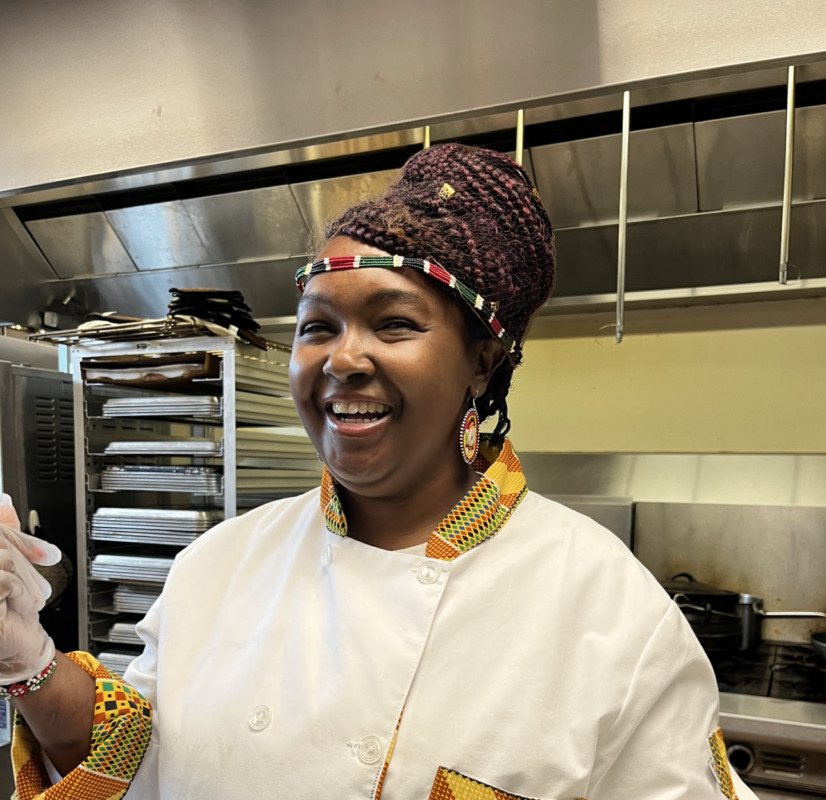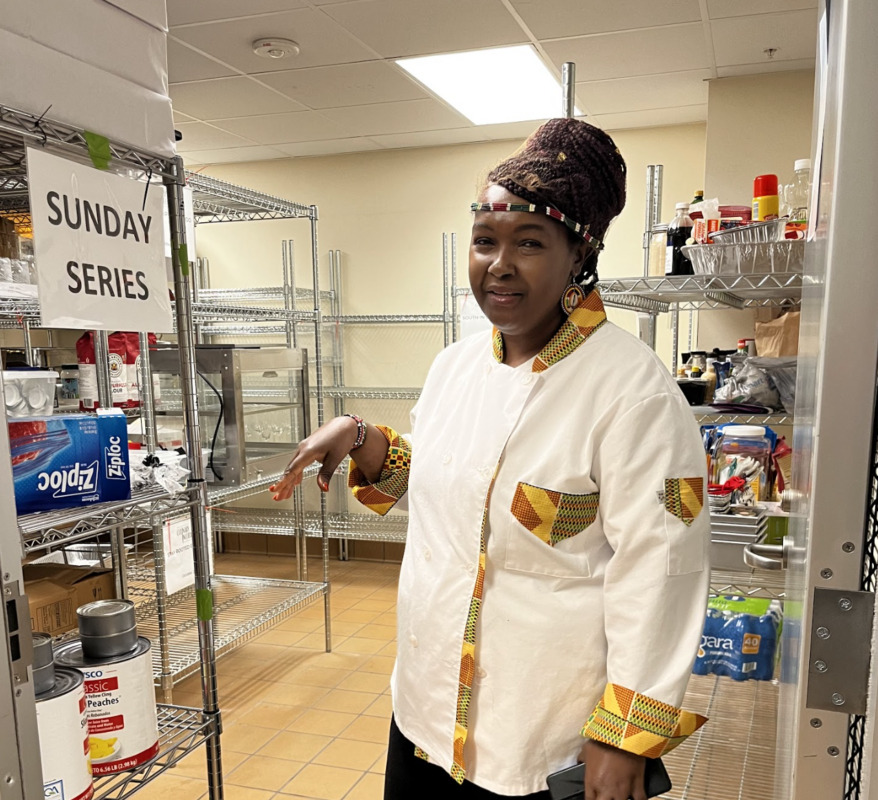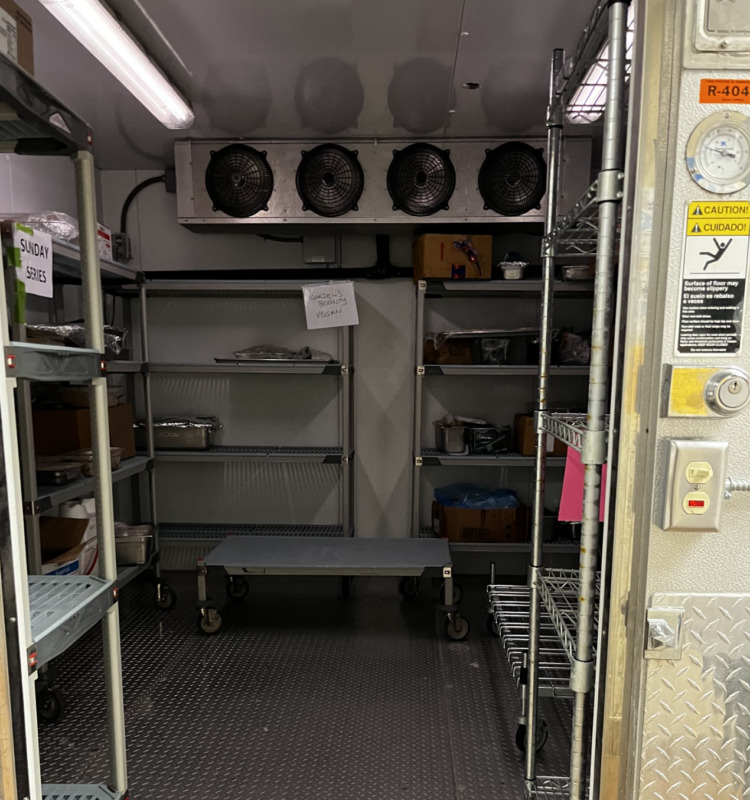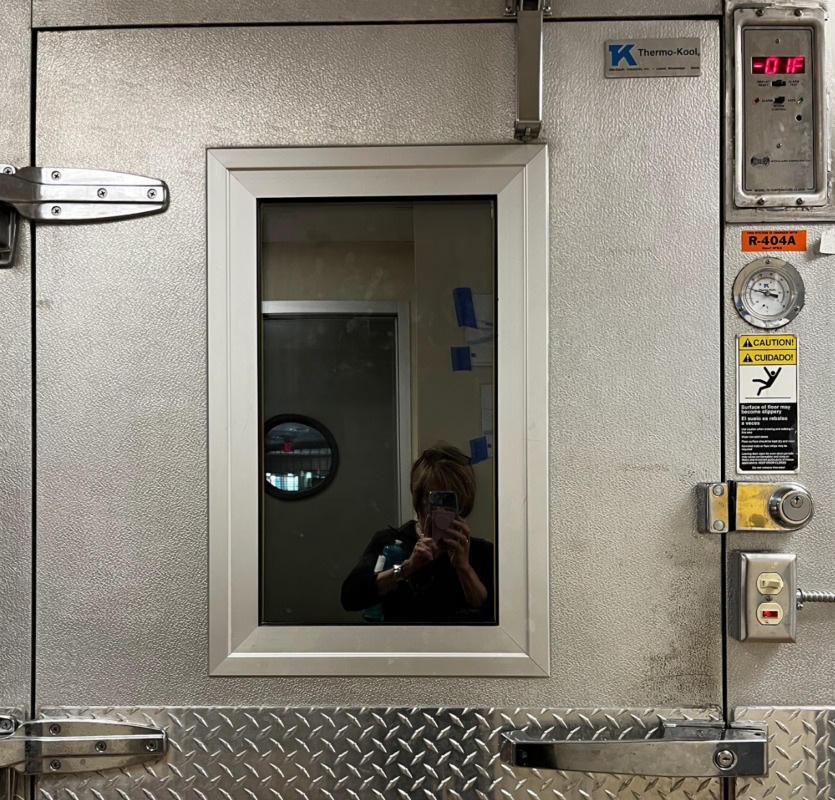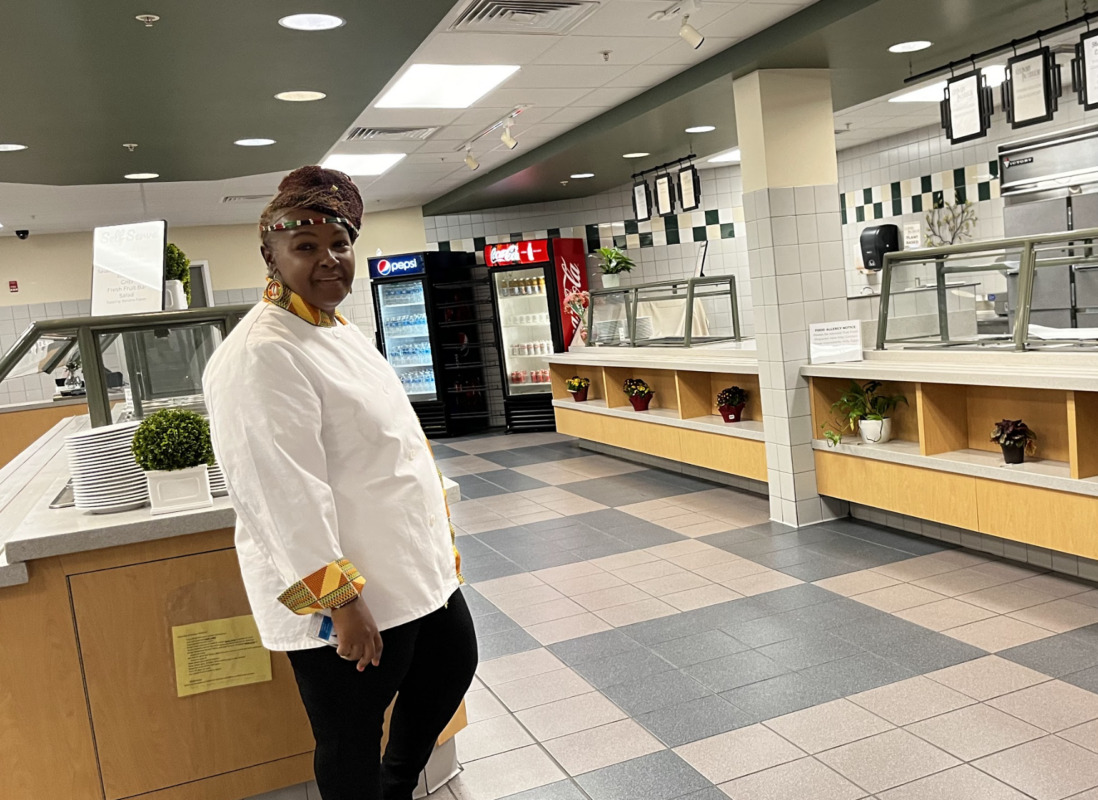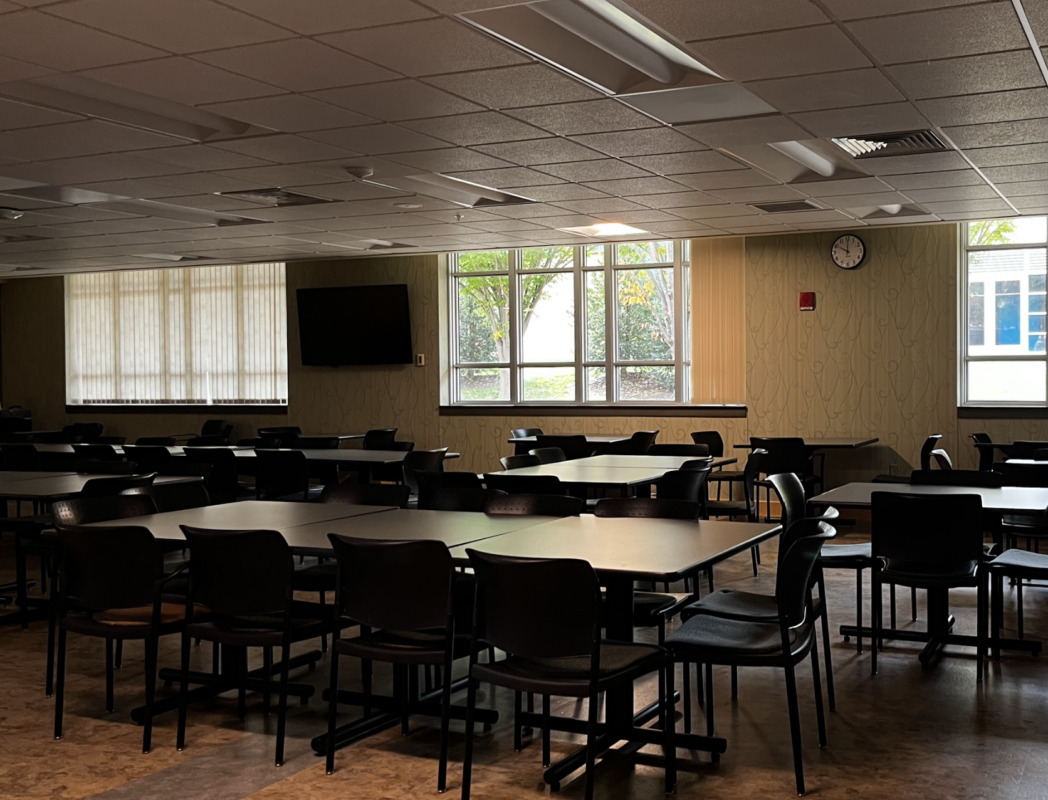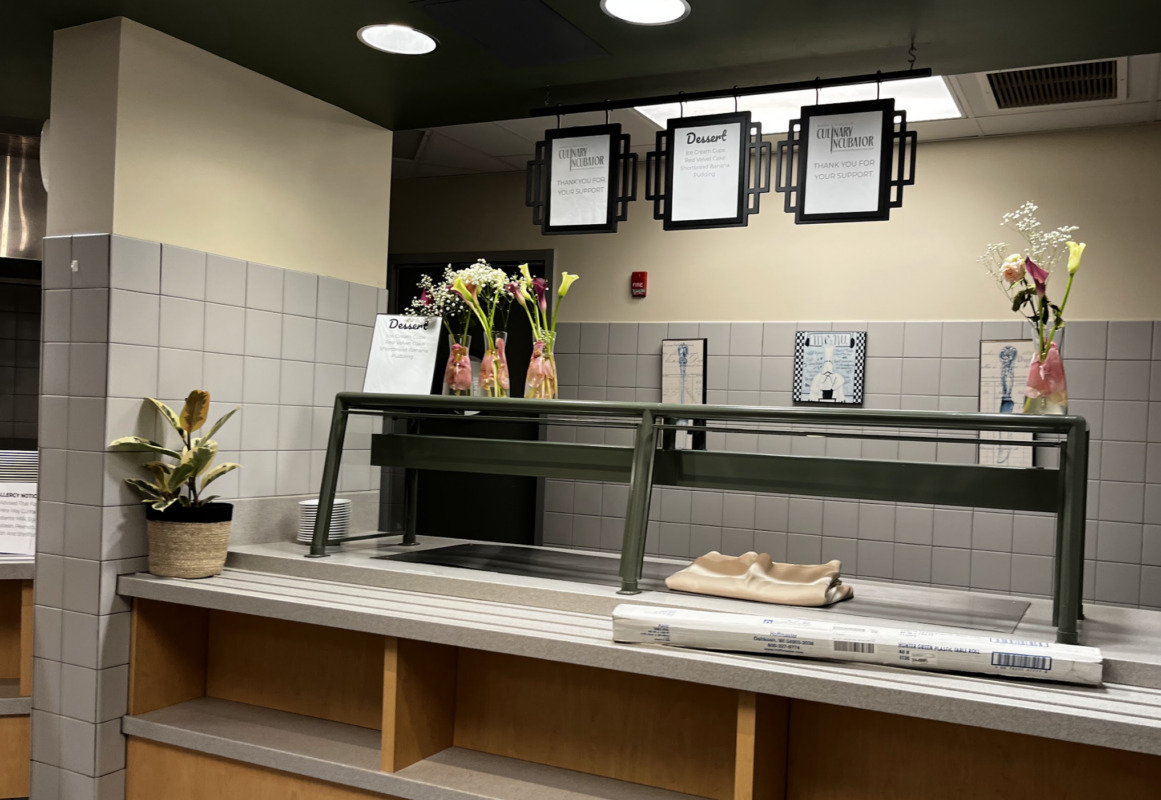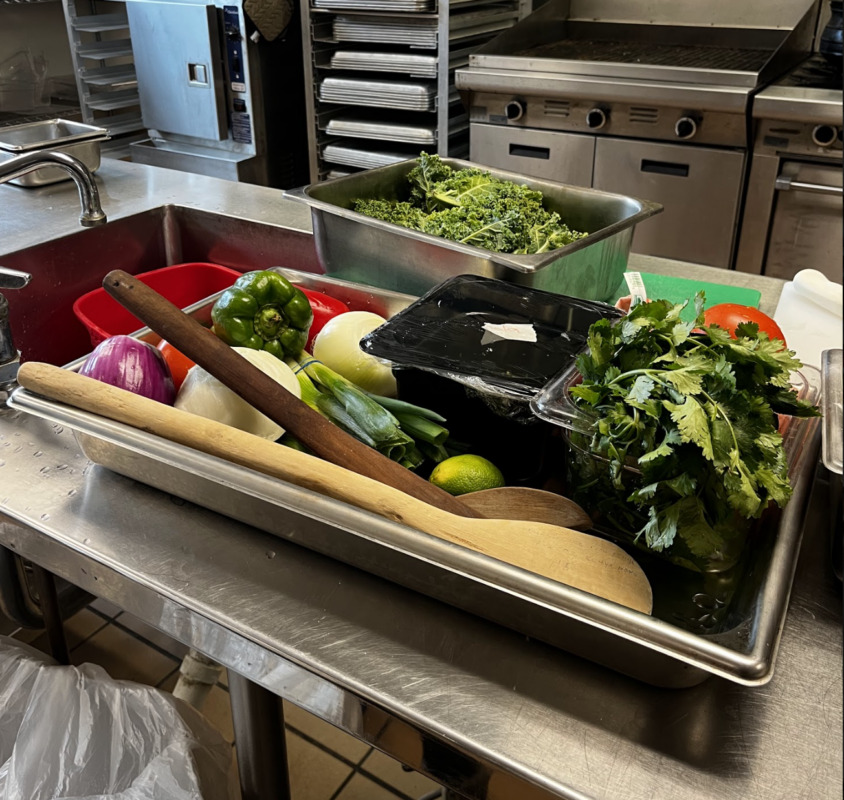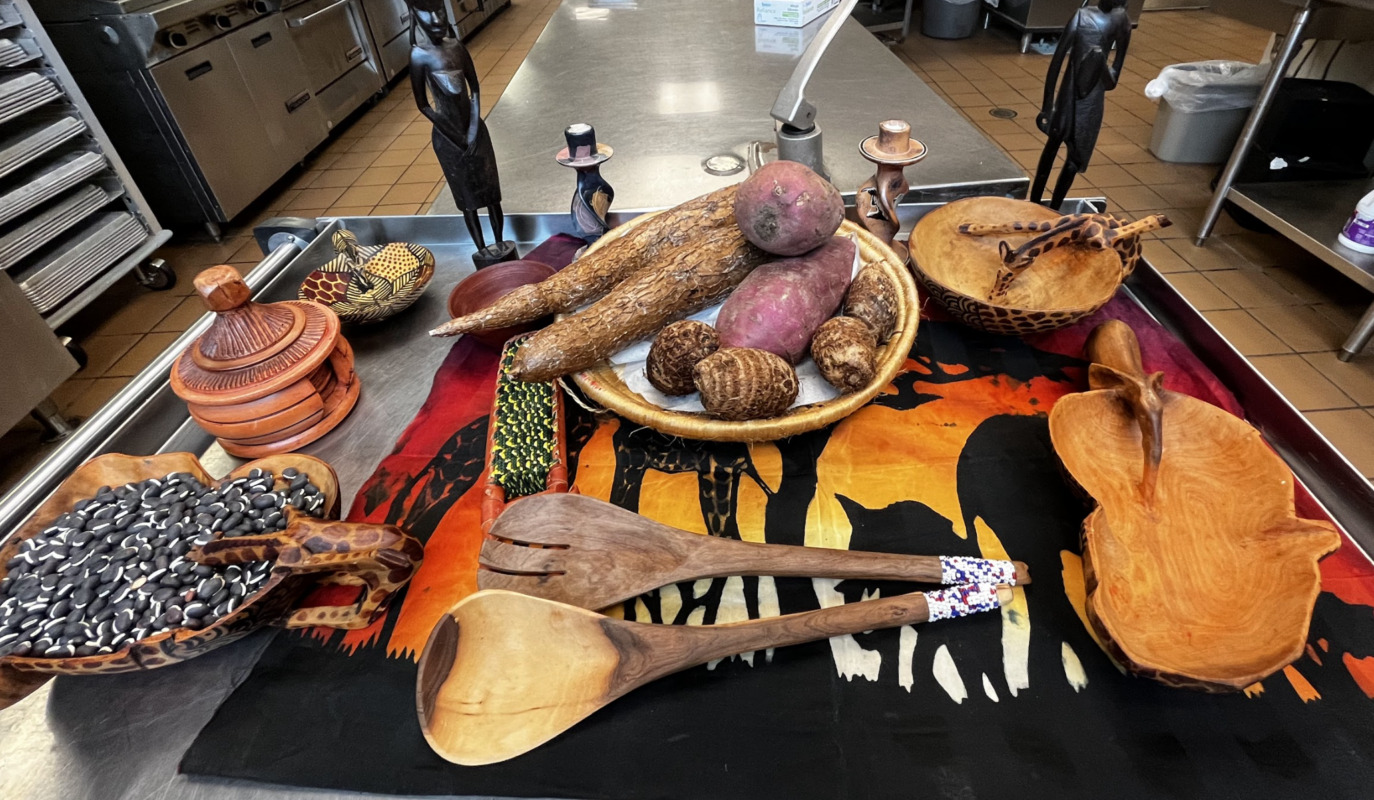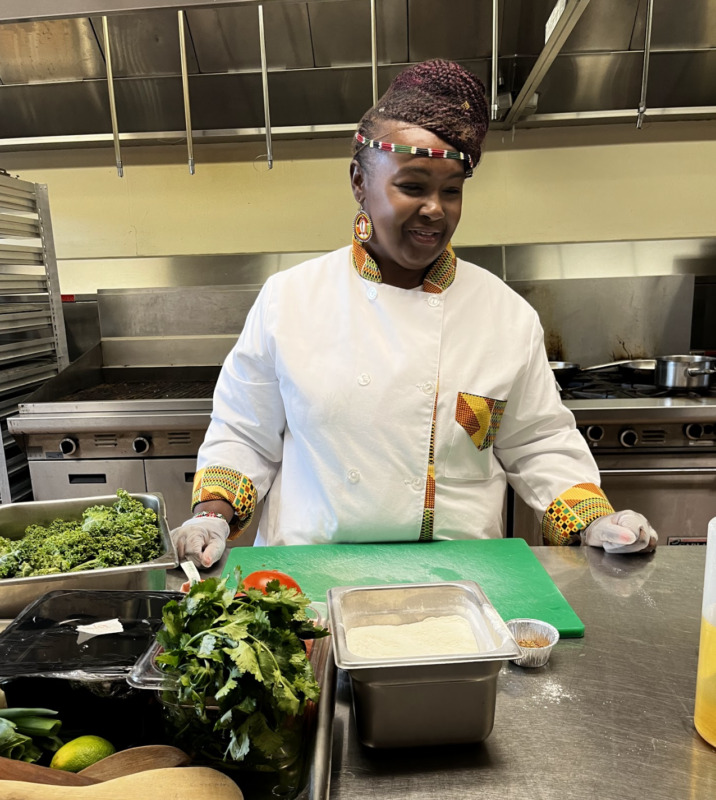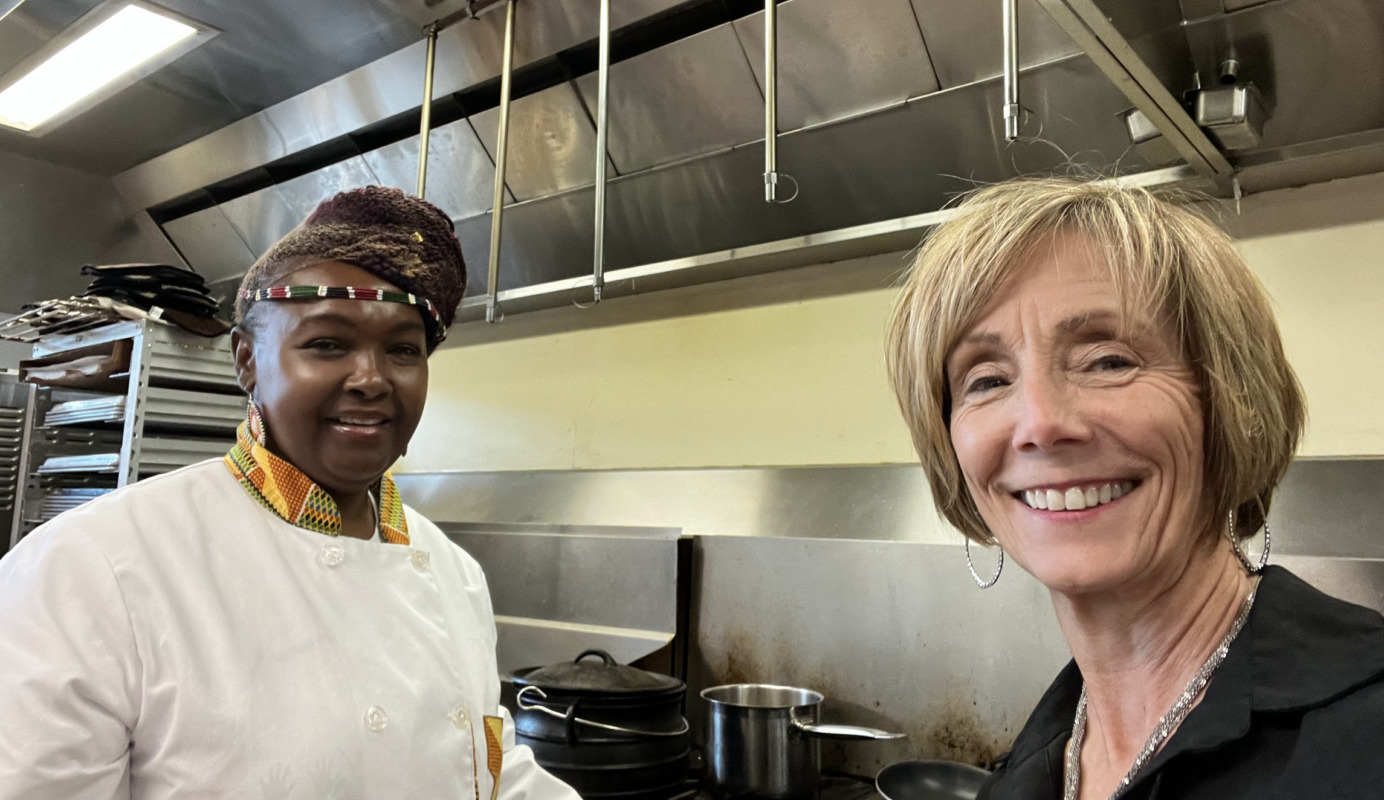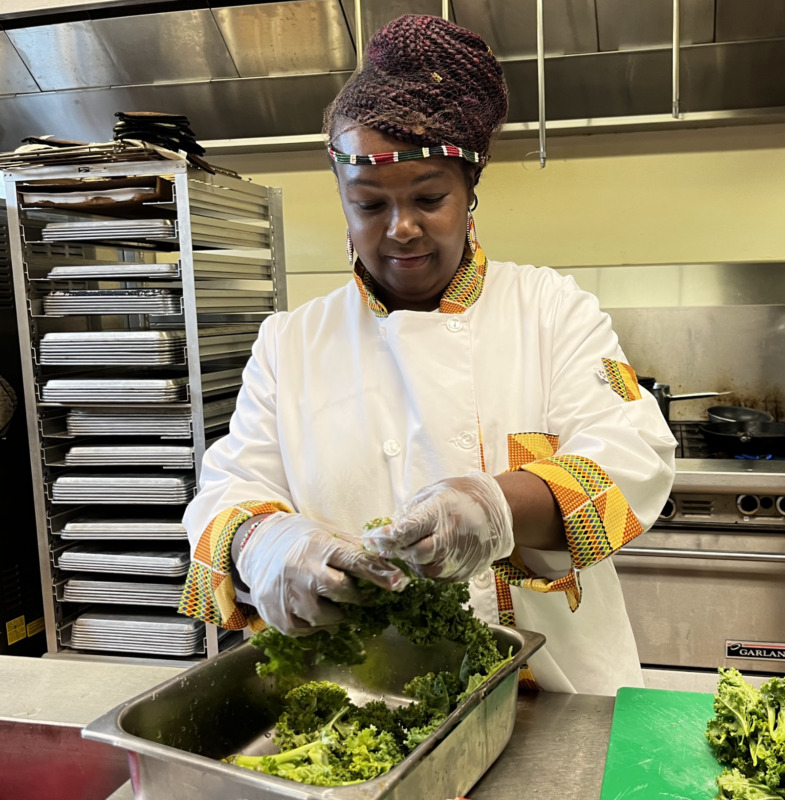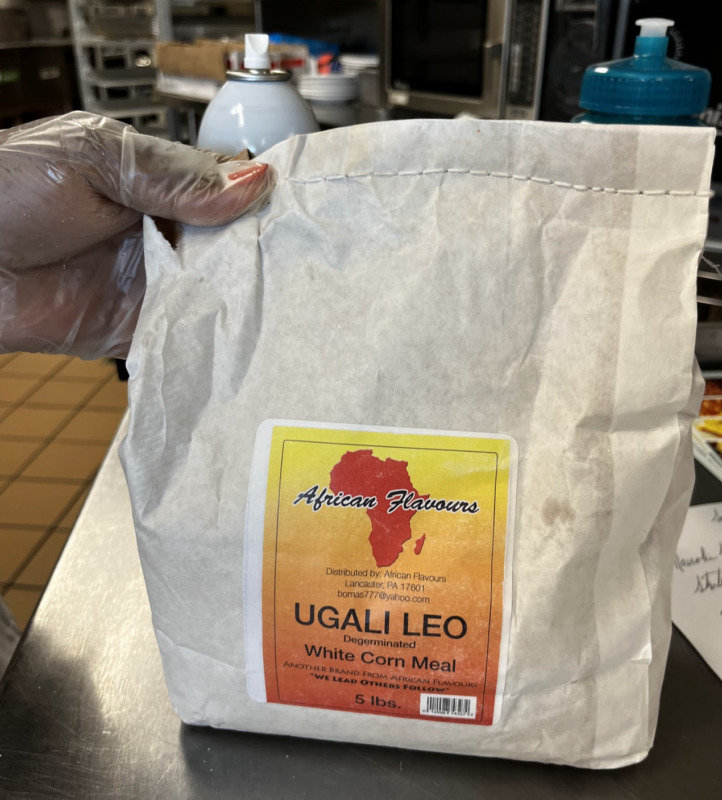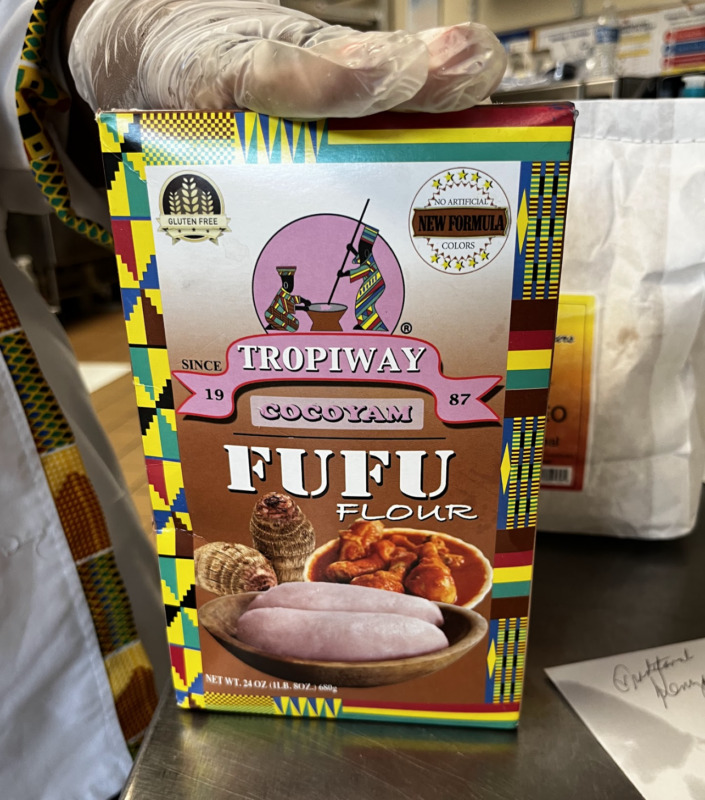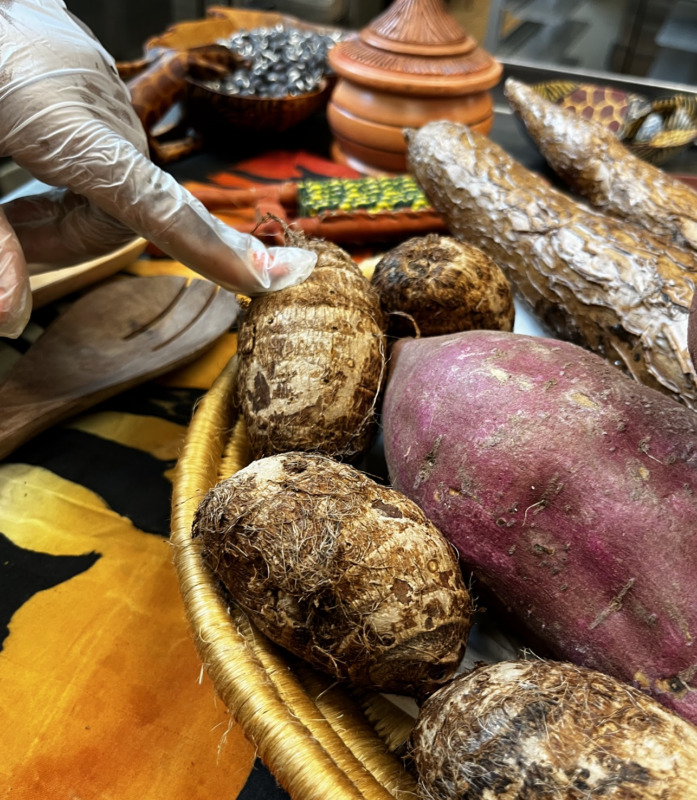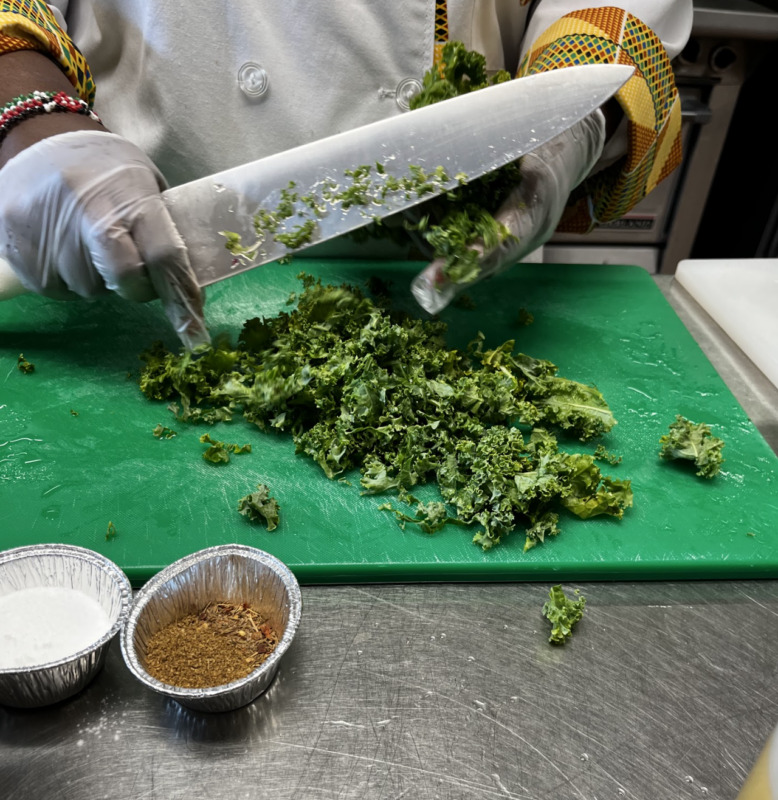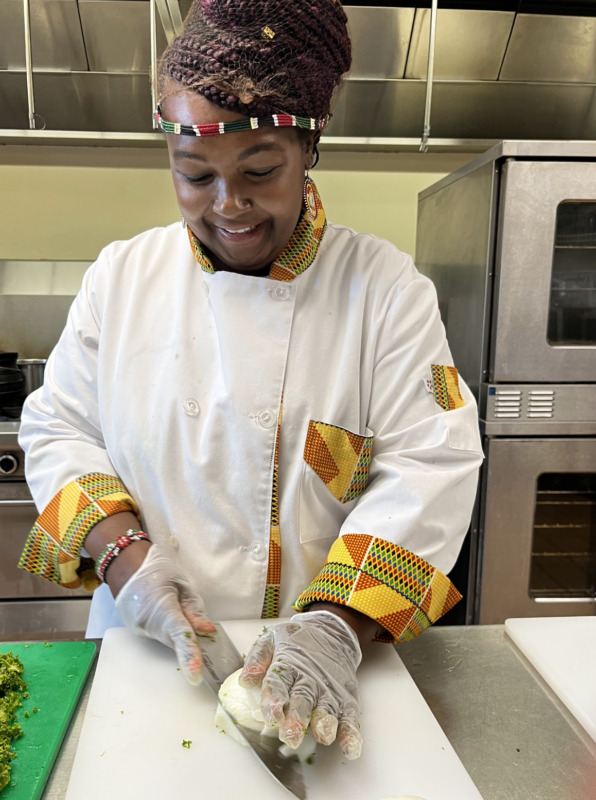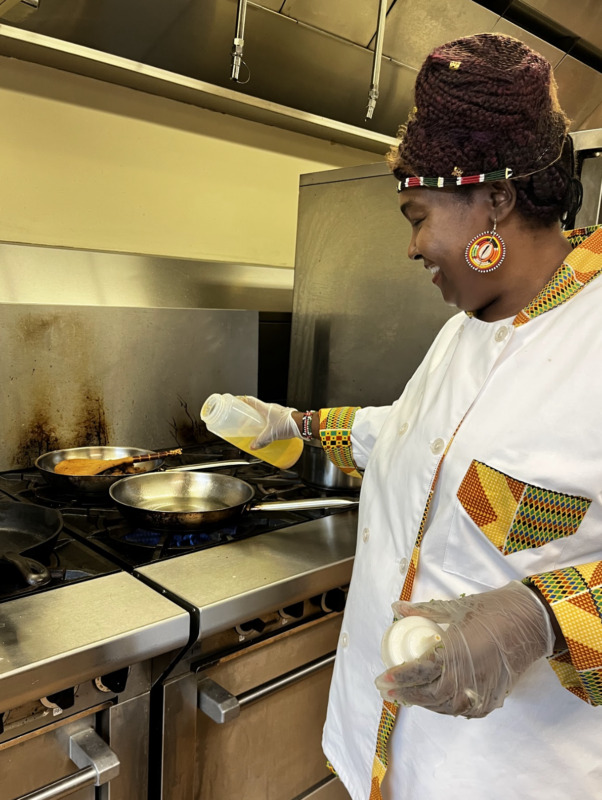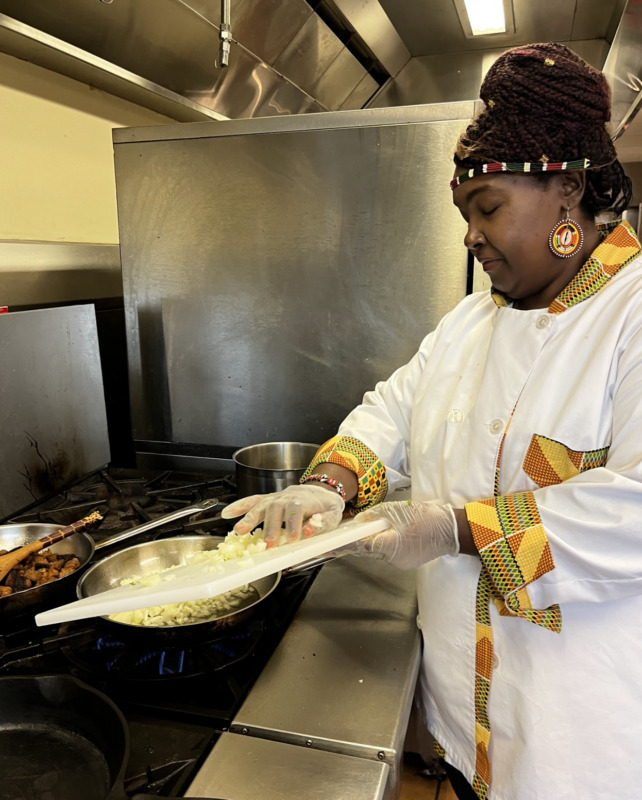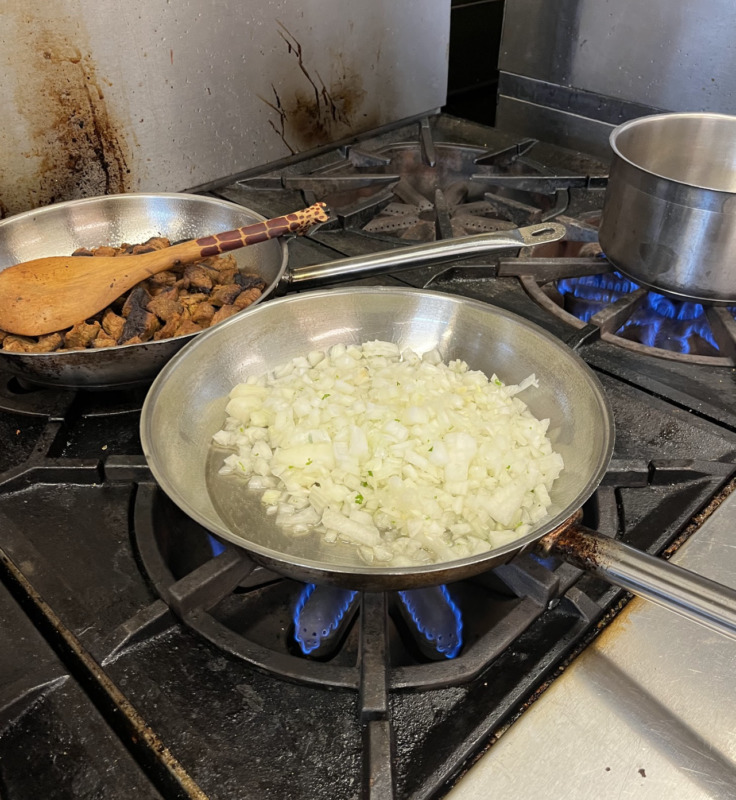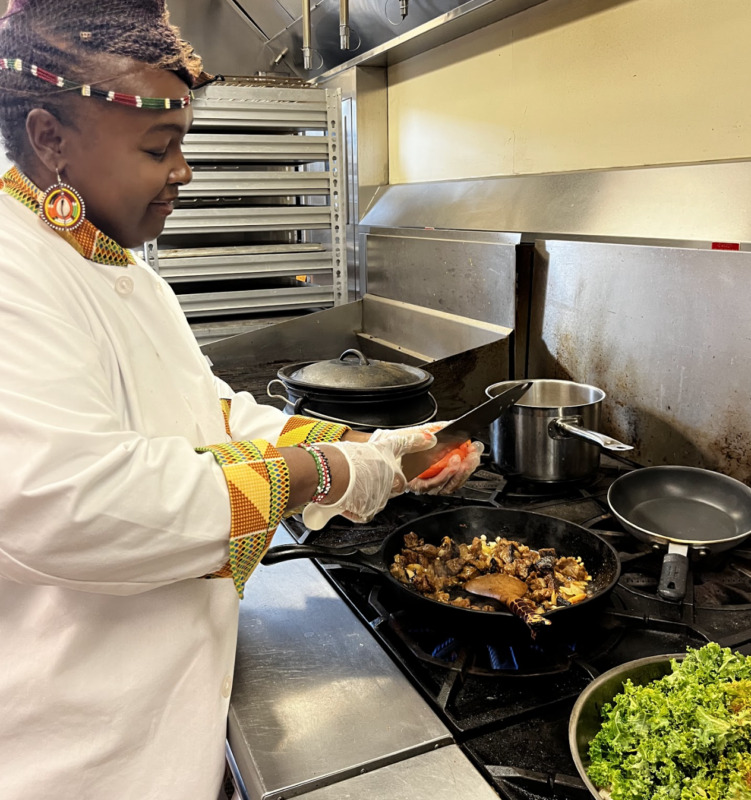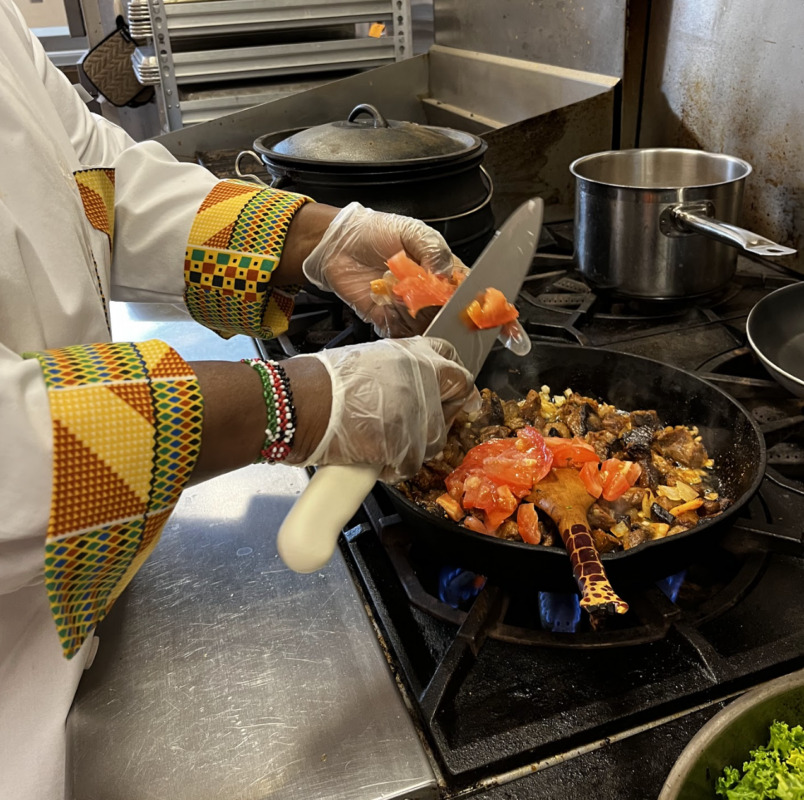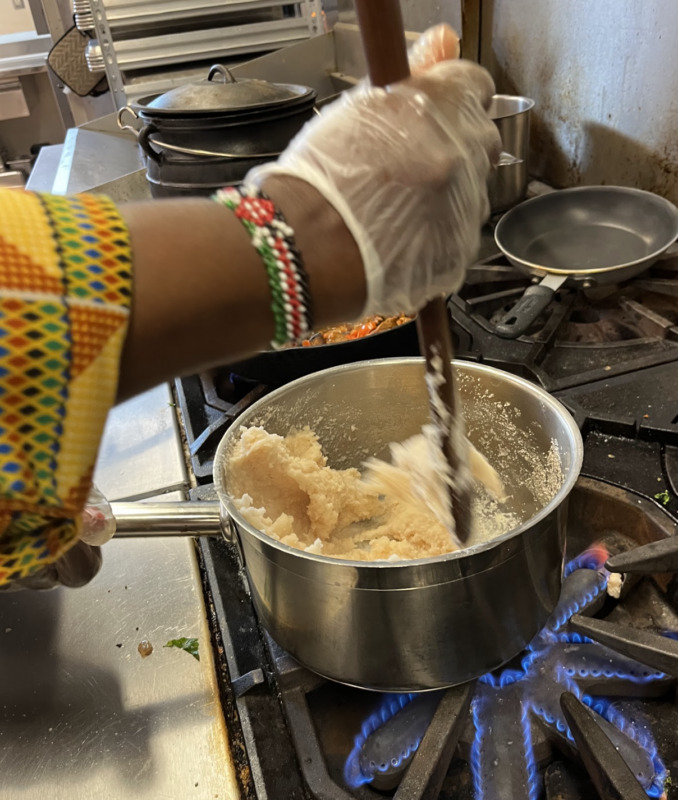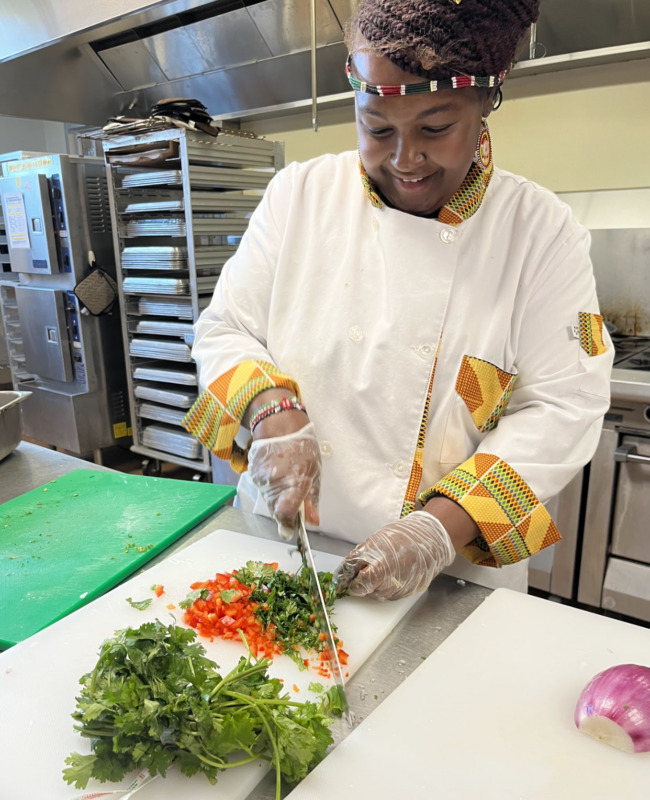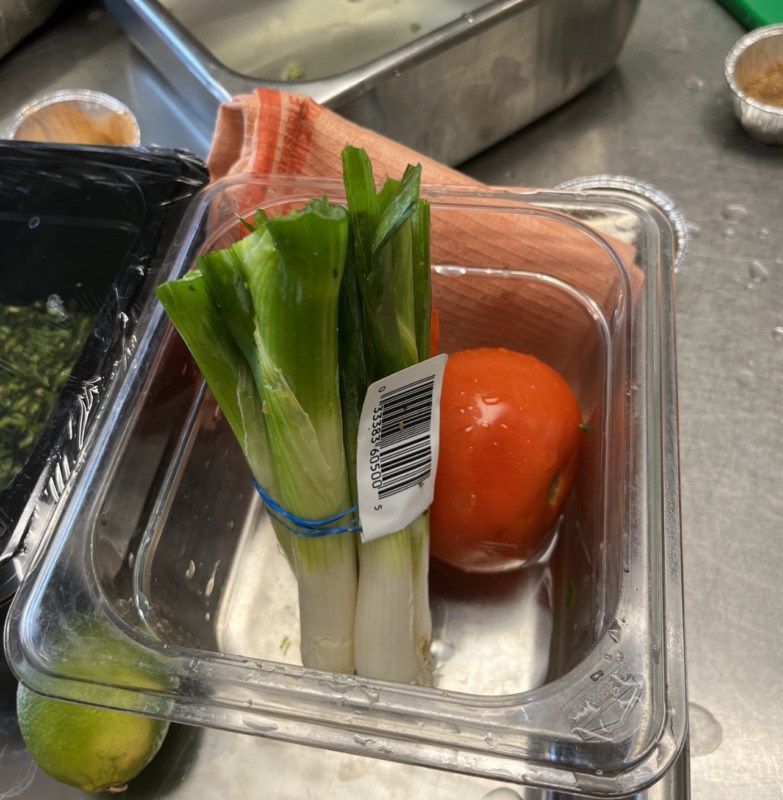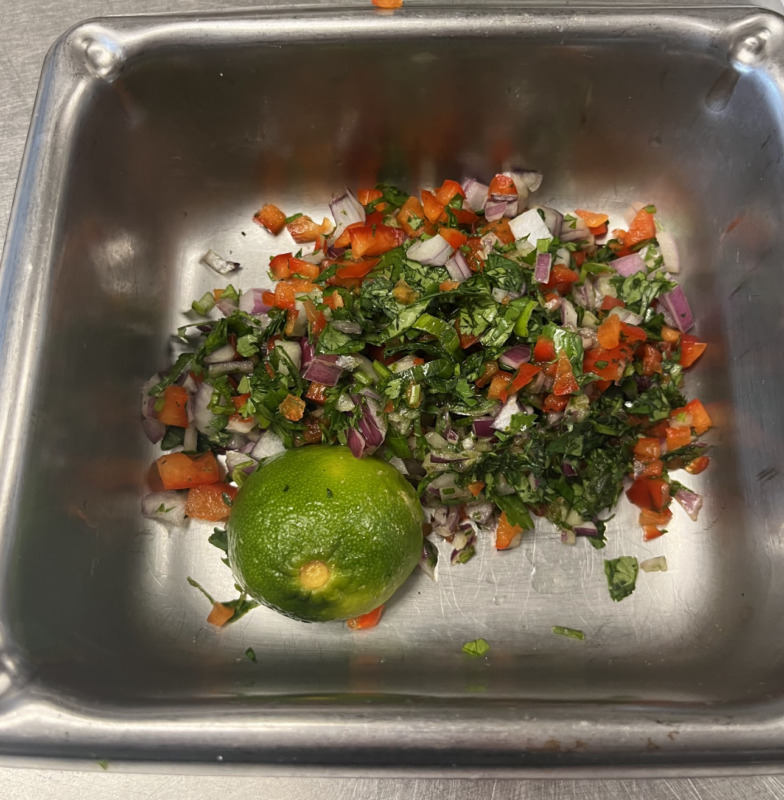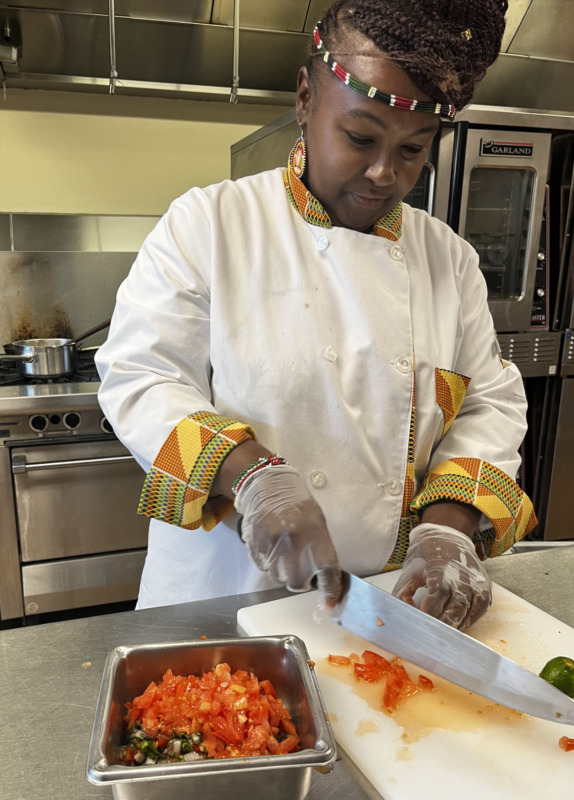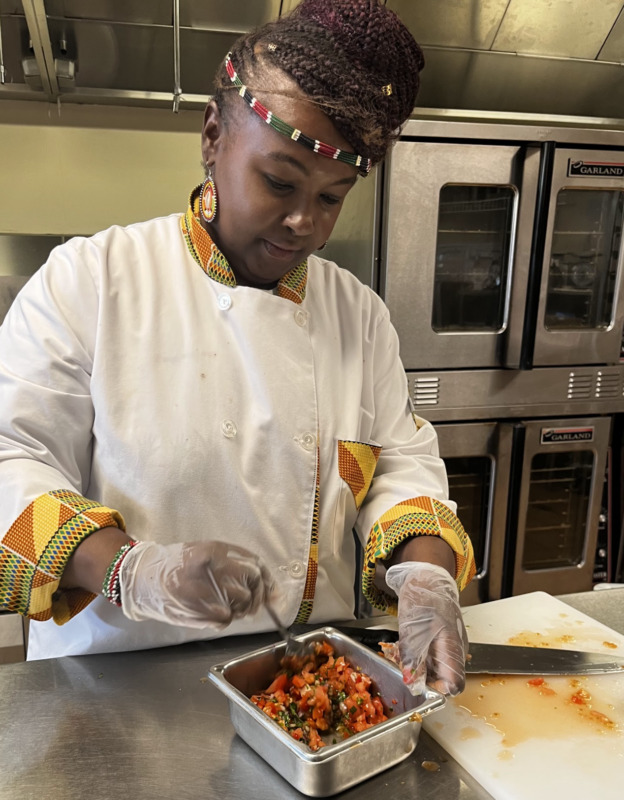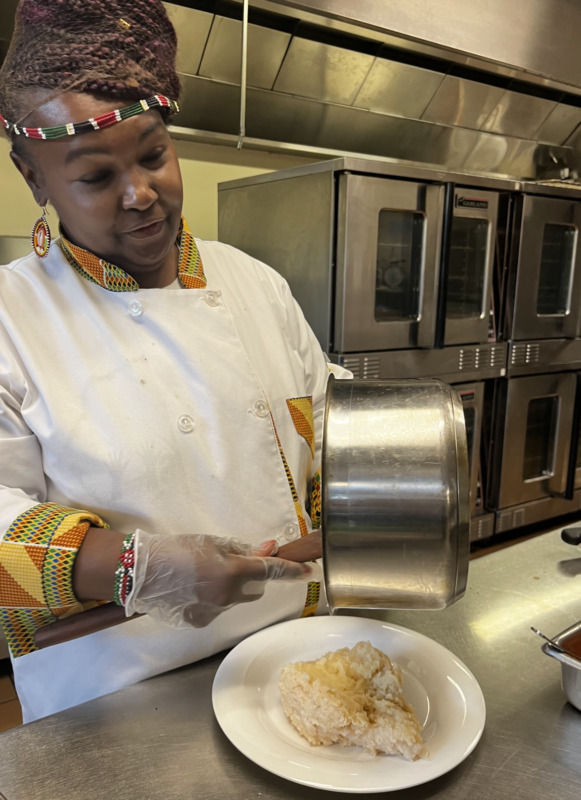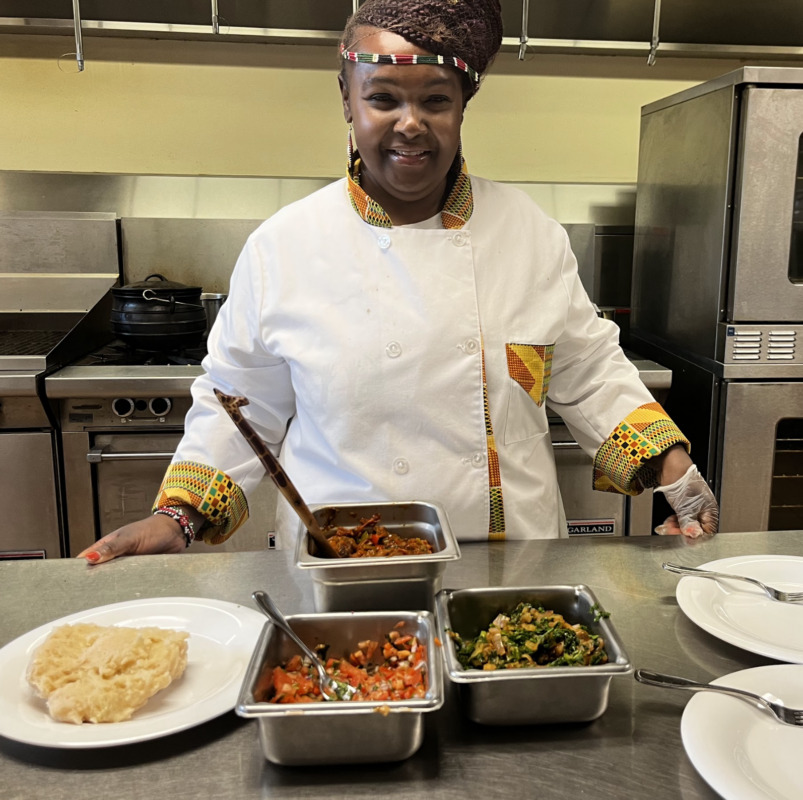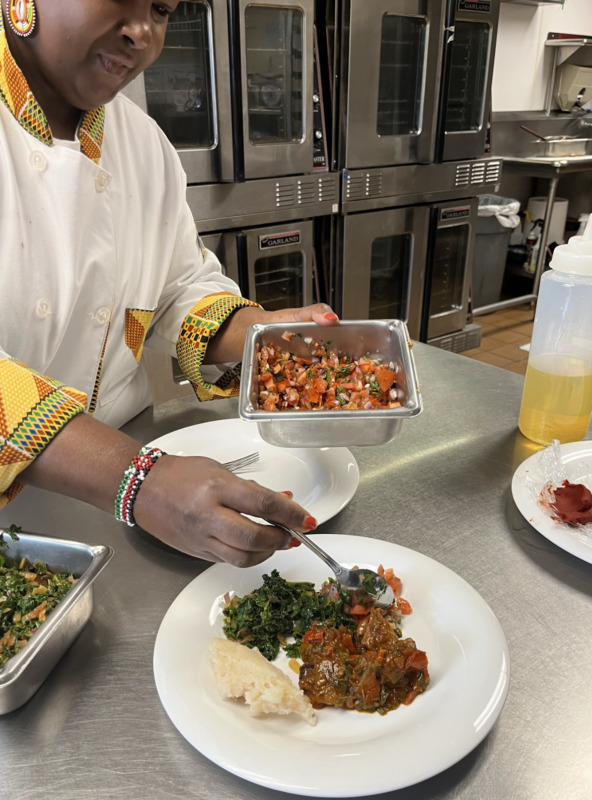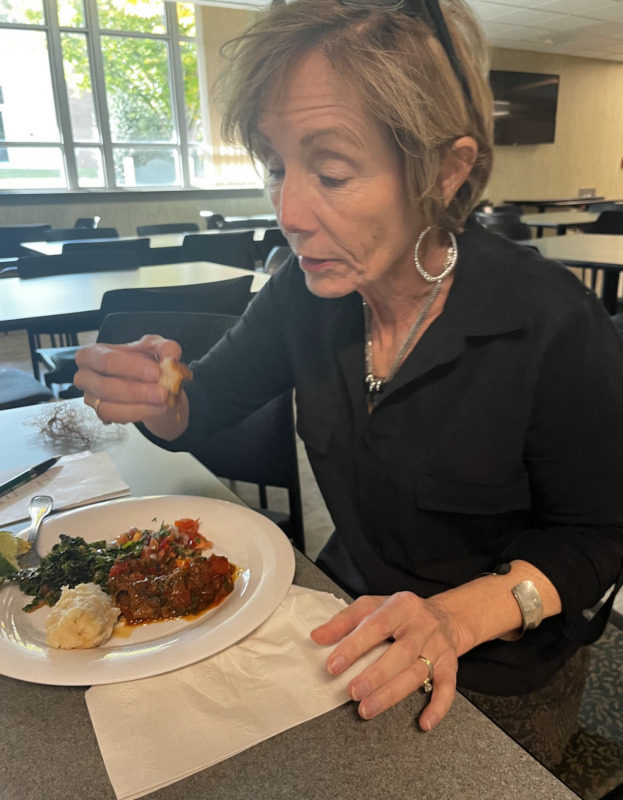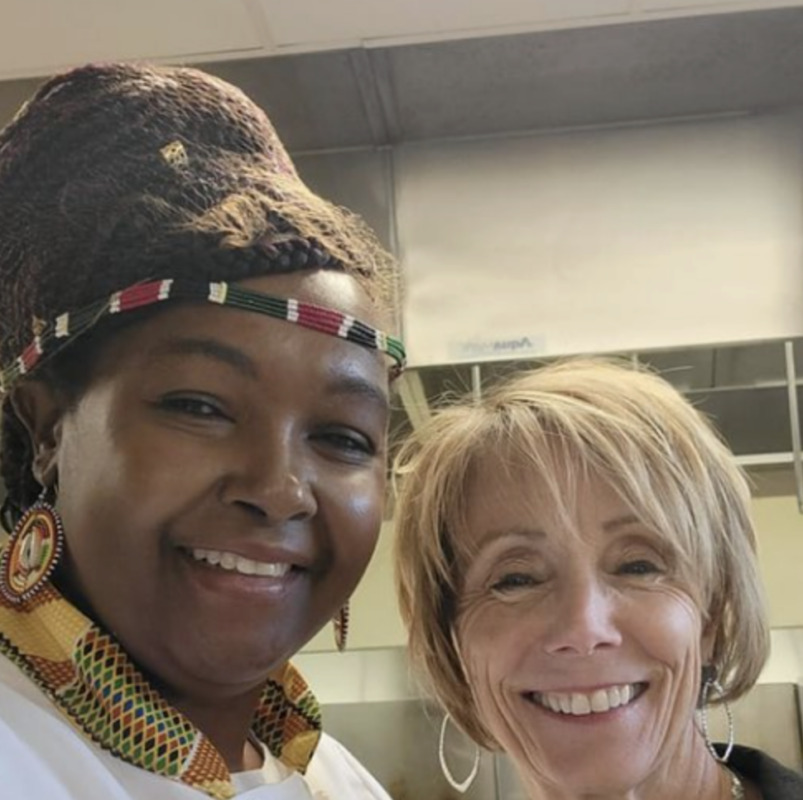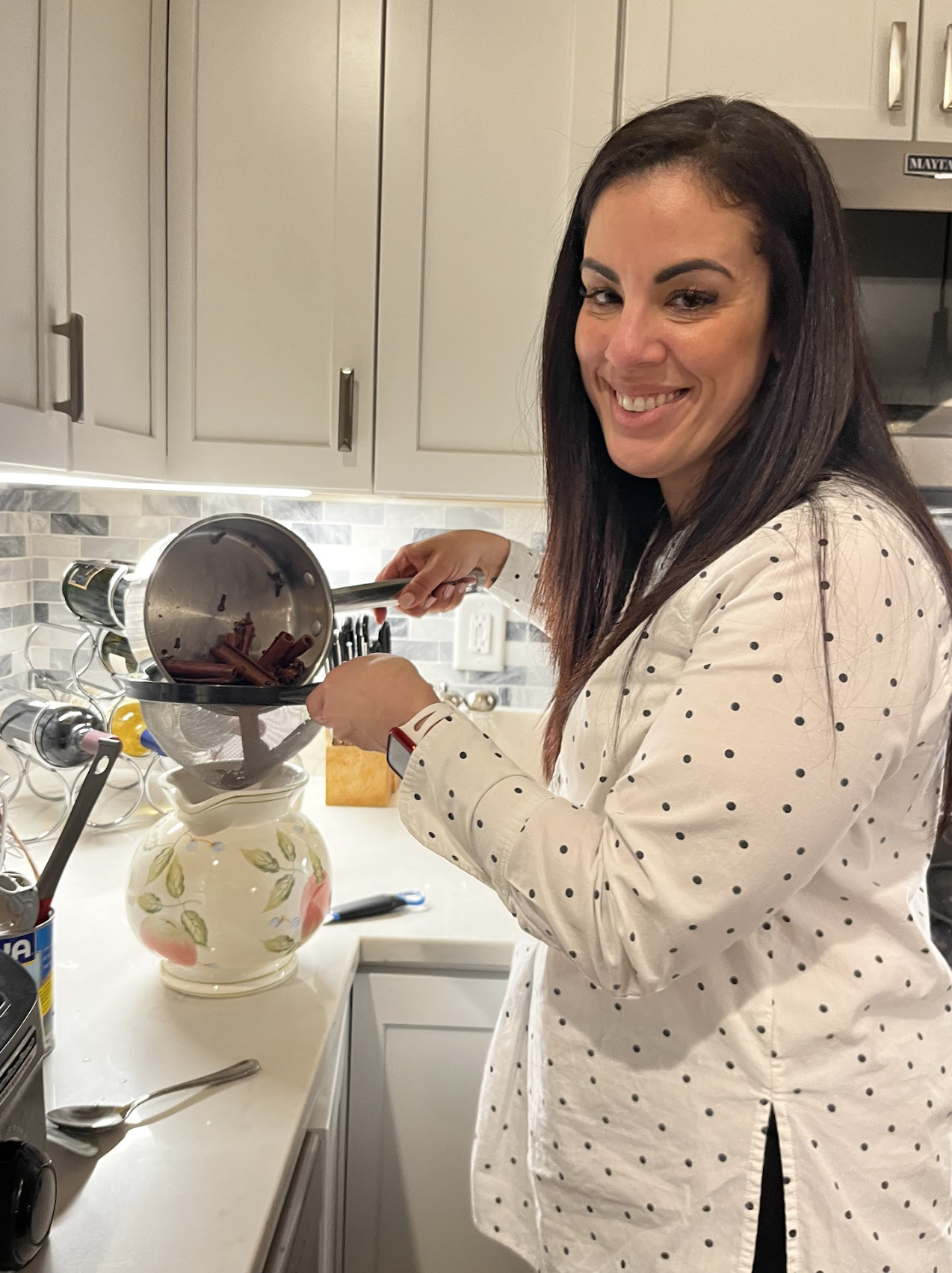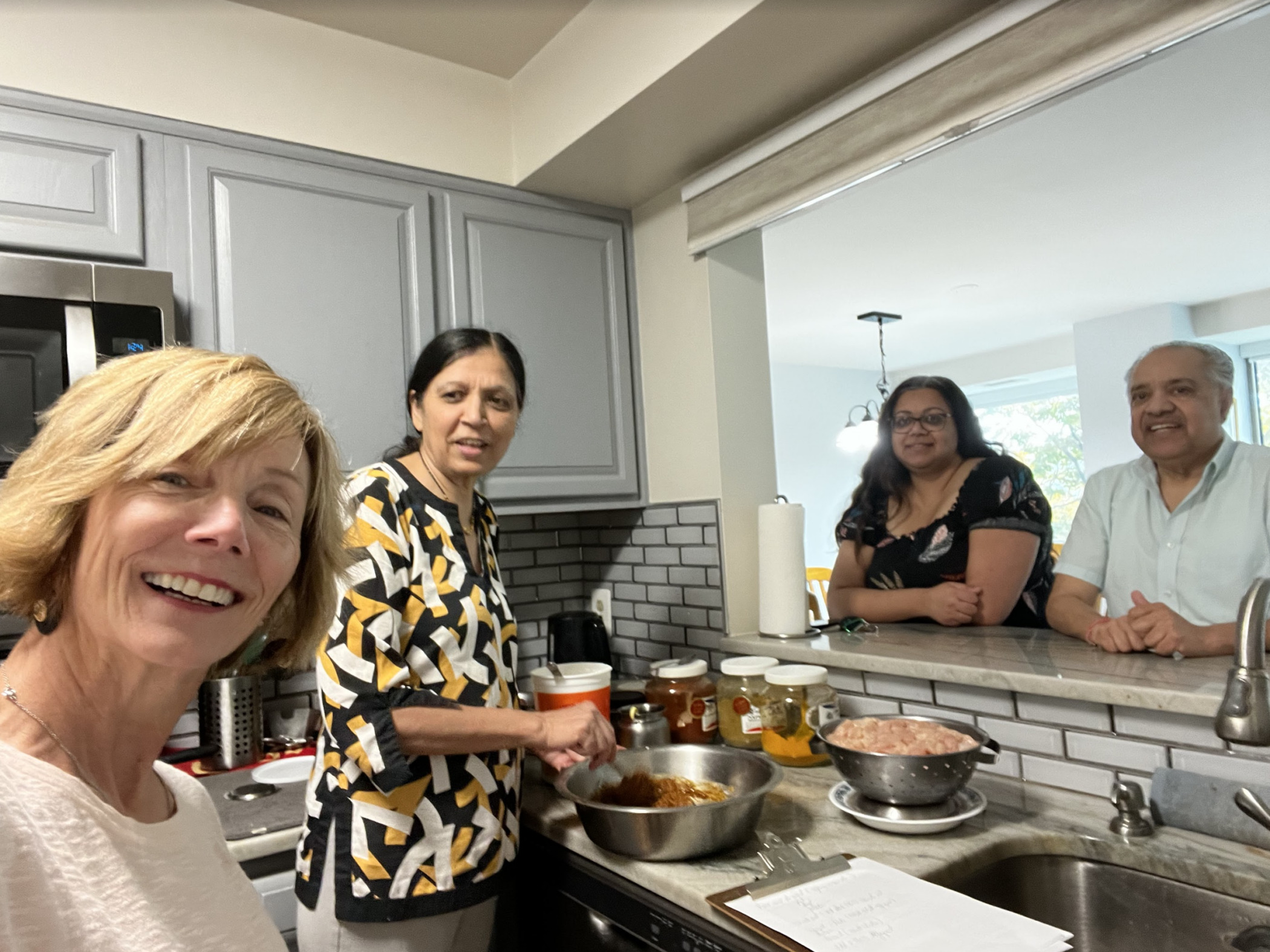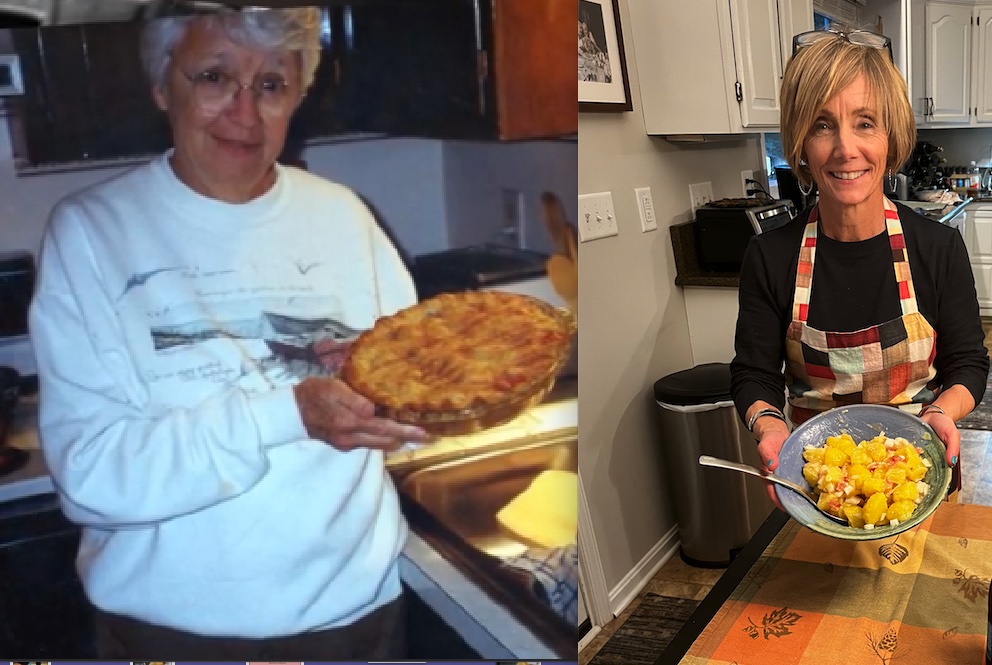Short and sweet…that’s the best way to describe the last edition of “A Yummy Year:…
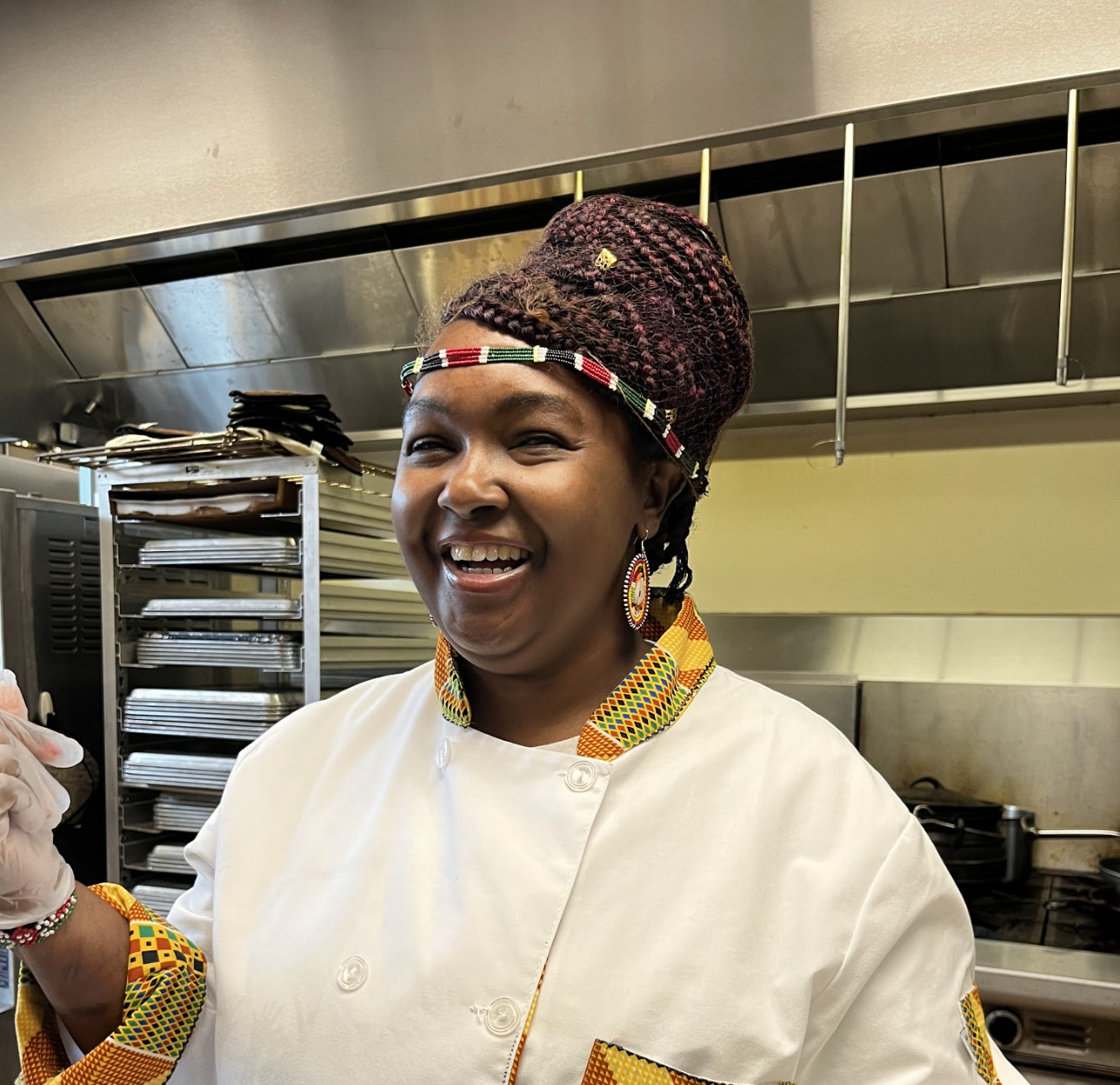
October – Carol Munyua-Crosby
Have you ever just met someone and instantly felt a connection? That’s how I felt when I was warmly greeted by Carol Munyua-Crosby, the founder of Harambee 54, in the parking lot outside of the David W. Fletcher Incubator + Labs on the campus of Hagerstown Community College. Carol, who hails from Nairobi, Kenya, was excited to be Prime Time for Women’s “cultural chef” for October…but not nearly as excited as I was to learn about her passion for sharing African heritage!
As we entered the building, Carol gave me a tour of the Incubator, which offers workspace and other support to entrepreneurs with the goal of inspiring the next generation of enterprising leaders. I was blown away by the professional grade kitchen in which Carol works… the large storage area for dry goods, commercial grade walk-in freezer and refrigerator, restaurant-style serving buffet, comfortable dining area, stainless steel counters and professional grade gas range and oven. Okay, I’ll admit it…I was a little jealous. My kitchen renovation project which was supposed to begin in July has stalled. More than three months later, my dining room is filled floor to ceiling, with the cabinets that hopefully someday will be installed. Enough of the “green-eyed monster” and back to the incredible Chef Munyua-Crosby!
As a well-prepared teacher and experienced chef, Carol carefully displayed on the counter all the ingredients we would use in our cooking adventure. The colorful arrangement of the dark green herbs and lighter green fresh kale lying next to the red and green peppers and the purple, white and green onions promised great things to come. My stomach was growling, and we hadn’t even begun to cook!
But cooking would have to wait just a little longer! First, I wanted Carol to tell me about the beautiful arrangement of African art at the end of the long counter. Carol explained that the exquisitely hand-carved and hand-painted bowls, serving utensils and statues came from different African countries. “I believe it is possible to build bridges and find common ground by highlighting the cuisines, art and fashion of all 54 African countries,” she said. I was inspired by her wisdom and couldn’t have agreed more!
The more Carol shared her passion the more I wanted to know! I’m curious about people and their journey. I like to understand where they started, how they got to where they are and where they hope to go in the future. I ask a lot of questions! Some people find it annoying. Fortunately, Carol tolerated my questions and willingly shared her story. Born in 1977, as Kenyan tradition dictates, she was named Waithera Munyau, after her maternal grandmother. She said, “Don’t get the idea I was a city girl. I grew up in Githemba, a small rural village on the outskirts of Nairobi.” I learned that Carol was the eldest of four siblings, walked more than three miles to school each day and that her family, like most others, didn’t have a lot but made do with what they had.
At 17, after receiving a scholarship to study nursing, Carol immigrated to the United States and began taking courses at Baltimore Community College. Listening to her story I was impressed with her command of the English language. Ever curious I asked, “Did your school teach English?” Carol smiled and then chuckled before replying, “Yes, a little English was taught. Mostly though, I learned English by listening to Dolly Barton, Kenny Rogers, and ABBA.” There’s absolutely no way I could ever learn another language by listening to music but thanks to Carol I did learn a few words in her native Swahili language…Asante Sana, Carol!
Carol is and has always been industrious and someone who doesn’t shy away from hard work. While attending college, Carol worked part time at a Royal Farms Store and for fun hung out at the Baltimore International College (BCI), which is now affiliated with the Stratford University School of Culinary Arts and Hospitality Management. She was such a frequent visitor that BCI offered her a job and later admission to study there.
After one of her daughters experienced trauma due to bullying, Carol acknowledged the discrimination and prejudice she experienced in her own life as a woman and an immigrant. During the pandemic, like many others, Carol had time to pause, reflect and discern her future goals. It was during this time as she thought of her namesake, her grandmother in Kenya, her Njoki, that Carol started a journey to live out her African heritage more authentically. There had been years during which Carol tried to fit into American culture but still felt like an outsider. She decided rather than trying to fit in, she would stand out…as an ambassador of African cultures and an advocate for celebrating the shared humanity of all. Looking me in the eye, Carol said, “I decided to be true to who I am.” And that’s how Waithera from Kenya became Chef Carol, founder of Harambee 54 in Hagerstown, Maryland!
Standing next to Carol at the stove, she explained that we would be cooking sukuma wiki and ugali, two traditional Kenyan staples that are healthy and tasty. Sukuma Wiki translates to “push the week” meaning that the kale and onions that comprise this dish are affordable and still available at the end of the week. It is usually served with ugali, a semi-solid, dough-like porridge made of white corn flour, which Carol described as “polenta without the cheese.”
While holding a bunch of kale into her left hand, Carol began finely shredding the kale with a large, sharp chef’s knife. “Aren’t you afraid you will cut your fingers off?” I was completely astonished by her daring knife skills! Carol explained that in Kenya, she grew up chopping and shredding vegetables while holding them. “We cooked over open fires. It would be unsanitary to place a cutting board on the ground and then chop vegetables on it.” Ahhh, now I get it.
Carol sauteed the chopped onions in a heavy cast iron pan and then added the kale. As she seasoned the kale, Carol told me that salt was a specialty item in her small village and for that reason her family frequently seasoned their food with the fresh lemons that grew abundantly outside the family’s hut. When I asked her about holiday meals, Carol said, “I was raised in a large Catholic family. Christmas and Easter were our big holidays and the only times we ate meat, usually goat or chicken.”
To make the ugali, Carol poured white corn flour into boiling water, stirring until it thickened into what looked like soft dough. Carol noted that other countries in Africa use a variety of flours such as casava, yam or cocoyam to make a similar dish called fufu. Next, Carol added onion, garlic, tomatoes, tomato paste and a blend of seasonings (cardamom, cumin, coriander) to the beef she had started before I arrived. The mouth-watering aroma filled the entire kitchen, and in my mind, I was transported to Carol’s village outside of Nairobi.
Just before we were ready to eat, Carol made kachumbari, a salsa-like condiment to serve alongside the sukuma wiki, ugali and beef. She quickly chopped roma tomatoes, red and green onions, parsley, and cilantro into a mixing bowl and squeezed fresh lime juice over the blend. Plating the food, Carol’s artistic presentation was evident. Looking at the dark green sukuma wiki alongside the savory beef, ugali and colorful salsa, I knew the meal would taste as delicious as it was pleasing to the eye.
As we sat to eat, Carol handed me flatware but explained in her native country, food is eaten by hand. “Then that’s what I want to do!” I said. Carol demonstrated the proper technique and I quickly learned to use the ugali to scoop the delicious food into my mouth. Nearly three hours later, after a very satisfying meal and an incredibly meaningful conversation, it was time for me to go. As I walked back through the parking lot where just a few hours earlier I met Carol for the first time, I knew one thing for sure…I would be seeing her again. Prime Time for women is an organization committed to highlighting women who understand the power of positive social connections to improve health and our world. And Carol, who describes Harambee 54 as her effort to bring together the old and the new and connect her past to her present to make a better future for all, is my kind of woman!

